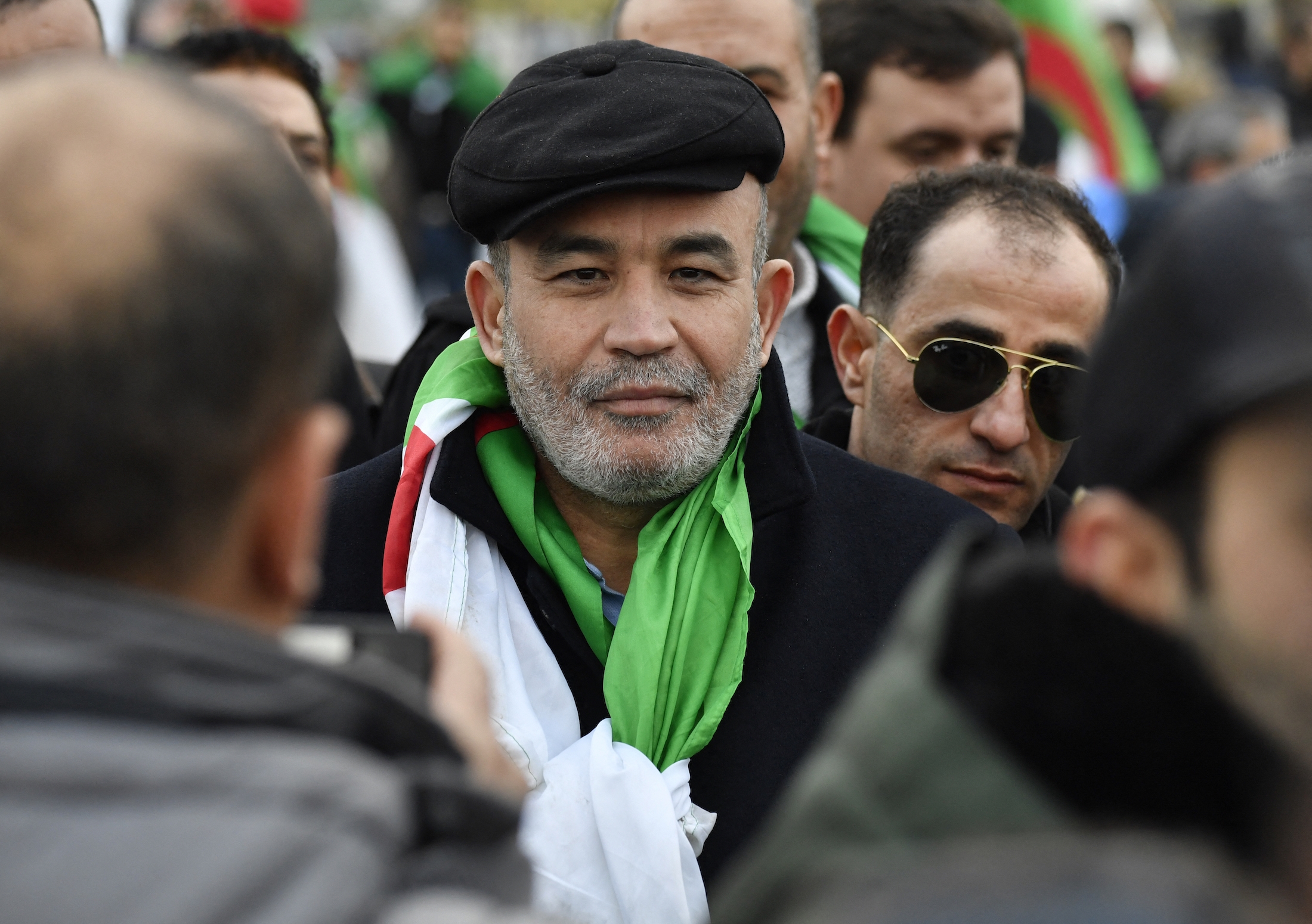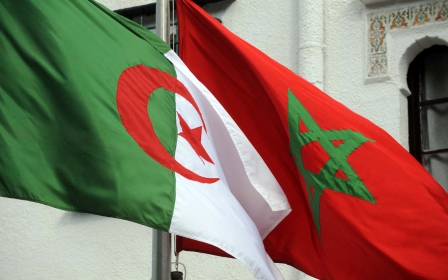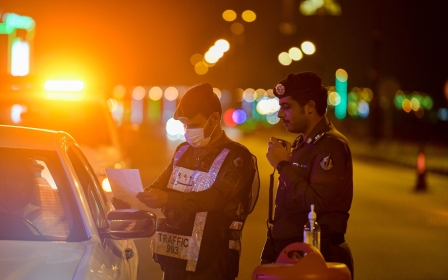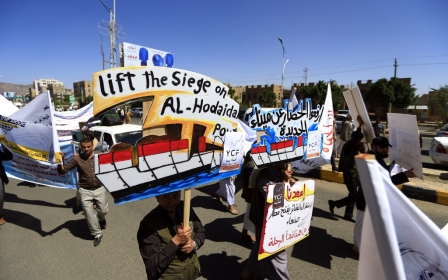Arabic press review: Algerian dissident faces 'imminent threat to life' in UK

Former Algerian diplomat faces threat in UK
A prominent Algerian dissident residing in the UK has been warned by British authorities that he faces an "imminent danger to his life" and should relocate for his safety, Arabi21 has reported.
Mohamed Larbi Zitout, a founding member of the Algerian opposition Rachad movement and a former diplomat, said British police advised him to leave his home in London to protect himself.
The visit from a "British security squad" took place on Wednesday evening, when Zitout was about to go live on social media for his regular online appearance, he told Arabi21.
Authorities reportedly advised him to leave his home immediately, as they had information about "an imminent threat to his life" that required caution on his part.
But he said he rejected their proposal, stressing he would not go anywhere.
"I listened attentively to the commander of the police unit, who was extremely eager to ensure my safety, and spoke about the British laws that require the provision of public security for all residents in the country," he said.
"I expressed my appreciation to his interest in protecting me, but I told him that I cannot leave the house I have been living in for several years, where I have felt security and stability, and from it I have been leading my peaceful and civil struggle in order to contribute to the liberation of Algerians from the scourge of military rule to a civil state," he added.
The Rachad movement, led mostly by Islamist figures, has sought to unite members of the opposition from across the political spectrum together.
Operating primarily in exile, Zitout had not been directly involved with electoral politics under former President Abdelaziz Bouteflika.
Referring to his extensive experience as a former diplomat and politician, Zitout said he understood the "conditions and importance of political action" and wouldn't abandon his position.
He also called for the establishment of a civilian state in Algeria, and urged soldiers to return to their barracks and their original missions - to protect the country's borders and sovereignty, Arabi21 reported.
Lebanon condemns Israel over 'sovereignty violation'
Lebanon plans to file an "urgent complaint against Israel" over a violation of Lebanese sovereignty, the London-based Al-Quds Al-Arabi newspaper reported.
Prime Minister Hassan Diab has asked delegates at the United Nations to raise a complaint against Israel after it launched air strikes - via Lebanon's airspace - on sites in Syria on Thursday night and Friday, an act that he said "endangered the safety of civil aviation and directly threatened the lives of civilian passengers".
Israeli missiles "targeted arms depots and military positions" which the Iran-backed Lebanese group Hezbollah operated between Damascus and Homs, the UK-based Syrian Observatory for Human Rights said. No casualties were reported.
Residents of Beirut reported hearing the sound of the aircraft, which the Lebanese defence minister Zeina Akar denounced as "a blatant violation of Lebanon's airspace".
Akar said the aircraft were flying at low altitude, causing a state of panic among citizens.
Diab denounced Israel's attack and said the continued violation of Lebanon's sovereignty constituted a "direct threat" to UN Security Council Resolution No. 1701, which calls for the full cessation of hostilities between Israel and Lebanon.
The Lebanese PM called on the UN and the international community to condemn “Israeli aggression and take measures that preserve Lebanese sovereignty and protect UN Resolution 1701”.
Yemeni workers face deportation from Saudi Arabia
Saudi Arabia has launched "intensive campaigns" against Yemeni workers in the country, forcing thousands to return to their war-torn homeland, the London-based Al-Araby Al-Jadeed newspaper reported.
There are an estimated two million Yemeni expatriates working in Saudi Arabia.
Saudi authorities have in the past month issued new guidelines stating that no more than 25 percent of an organisation's employees could be drawn from the Yemeni workforce, according to anonymous sources in the Yemeni government who spoke to the newspaper.
The operation targeted not just Yemeni workers but labourers of various nationalities.
Since mid-July, Saudi authorities have been deporting migrant workers in the cities of Jizan and Najran, and have gradually expanded their campaign to other parts of the country, the newspaper said.
Meanwhile, in July and August, universities in the southern Saudi provinces of Baha, Jizan, Najran and Asir began terminating the contracts of all Yemeni academics without explanations.
It is believed hundreds of Yemenis in southern Saudi Arabia have been affected. Teachers and doctors have also been made redundant and told they must return home, according to local media.
Historically, Yemenis have headed to Saudi Arabia for employment opportunities, and the neighbours' relationship has only deepened since Riyadh intervened in Yemen's war in 2015.
With Saudi Arabia and its allies imposing a blockade on Yemen and continuing their war against the Houthi movement, many Yemenis in Saudi Arabia believe Riyadh should be supporting them, rather than seeking their removal.
The Yemeni government plans to talk with Saudi officials in a bid to "ease the measures" against its citizens, the sources told Al-Araby Al-Jadeed.
Yemen is seeking exemptions for its citizens in Saudi Arabia in light of Sanaa's ongoing economic and humanitarian crises, as well as the continuous devaluation of the national currency, the sources added.
Some 80 percent of Yemen's 30 million population is reliant on some sort of aid. The United Nations has called Yemen the world's worst humanitarian crisis.
Saudi schools introduce new curriculum
The Saudi Minister of Education, Hamad al-Sheikh, announced there had been more than 120,000 modifications to about 90 books in the newly developed Saudi educational curriculum, the Saudi newspaper Asharq Al-Awsat reported.
The minister added that 34 new books and syllabuses had been created, bringing the total number of new courses to 52.
Saudi Arabia began preparing for the launch of a new school year by announcing the resumption of physical attendance in classes, nearly 18 months after they were interrupted due to the coronavirus pandemic, the newspaper reported.
The new school year, which starts on 29 August, will see the start of a new educational curriculum, three-semester study plans, and an increase in the number of female teachers teaching young boys - up to 40 percent.
Arabic press review is a digest of reports that are not independently verified as accurate by Middle East Eye
Middle East Eye delivers independent and unrivalled coverage and analysis of the Middle East, North Africa and beyond. To learn more about republishing this content and the associated fees, please fill out this form. More about MEE can be found here.






